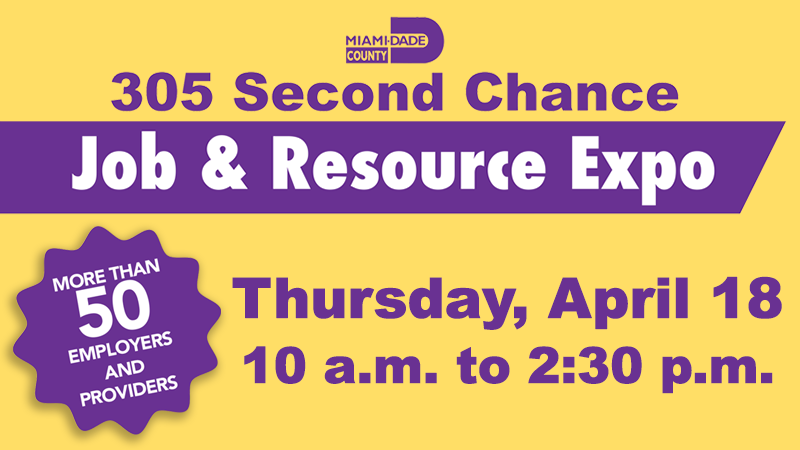-
News & Social Media
-
Create a new miamidade.gov account
A miamidade.gov profile allows you to link to your Water and Sewer customer account, as well as subscribe to a variety of news and alert services.
Receive weekly news & events, public notices, recycling reminders, grant opportunities, emergency alerts, transit rider alerts and more.
-
-
Employee Information
-
My Employee Portal
Employees can login to access personnel information, workplace tools, trainings and more.

-
Alcohol and Substance Abuse Awareness Month
March 25, 2024 —
Human Resources

Did you know more than 140,000 deaths occur every year in the United States due to excessive alcohol use? April is Alcohol and Substance Abuse Awareness Month, a time to raise awareness and understanding of alcohol abuse. Over time, excessive alcohol consumption can lead to the development of chronic diseases and other serious issues that affect your quality of life, physical and mental health.
If you or someone you know is struggling with alcohol misuse or abuse, there are ways to help. Here are some steps you can take to ensure that alcohol doesn’t become a problem for you or your loved ones:
Show compassion.
Share your concerns and support with loved ones. Have an honest, clear, and direct conversation about their habits and drinking patterns.
Understand alcoholism.
Educate yourself about the impact of alcohol consumption and discuss it with friends and family. Parents, talk to your children about the dangers of alcohol and drug use.
Limit alcohol consumption or try sobriety altogether.
If you're considering changing your drinking habits, you'll need to decide whether to cut down or quit. It's a good idea to discuss different options with a healthcare professional, a friend, or someone else you trust. Stick to the recommended guidelines for alcohol.
Stay occupied in a productive way.
Get active by exercising or find enjoyment by learning a new skill or hobby that doesn’t involve alcohol.
Minimize temptation.
Limit the amount of time spent at a bar or other venues that serve alcohol. Engage in social outings and events that do not encourage or center around alcohol.
Seek additional support.
Connect with trained medical professionals for additional help, resources, formalized treatment options, and counseling. The National Institute on Alcohol Abuse and Alcoholism’s Rethinking Drinking page has interactive resources to help you examine your drinking patterns. For additional resources and information about alcohol use and your health, visit the Centers for Disease Control and Prevention.
If you or a loved one is struggling with alcohol misuse or abuse, know you are not alone and there is help and hope. Please reach out to our team at Miami-Dade Employee Assistance Program (EAP). Our EAP counselors focus on supporting employees with internal and external resources that assist in setting the foundation for restoration and enhancement of emotional and mental wellness. The EAP provides on-site and virtual assessments for all employees and family members who are in need of assistance.
To set up an assessment with an EAP counselor at no cost please call 305-375-3293 or email Jessica.Hughes-Fillette@miamidade.gov. The hours of operation are Monday-Friday from 8 a.m. to 5 p.m.
Learn about Employee Support Services (ESS)Leaving Miami-Dade County
You are now leaving the official website of Miami-Dade County government. Please be aware that when you exit this site, you are no longer protected by our privacy or security policies. Miami-Dade County is not responsible for the content provided on linked sites. The provision of links to these external sites does not constitute an endorsement.
Please click 'OK' to be sent to the new site, or Click 'Cancel' to go back.





